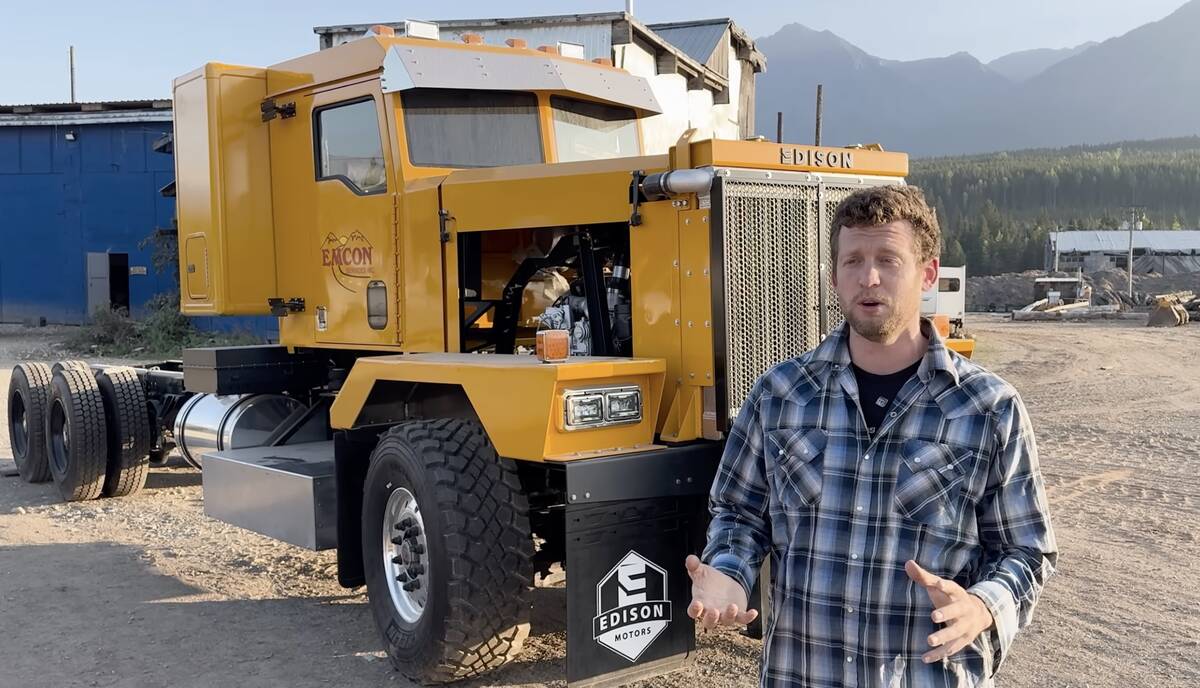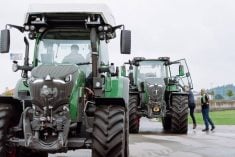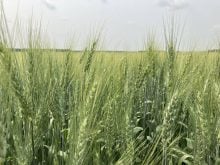LONDON, Ont. – Chicken producers may one day have a new perspective on the manure litter they remove from their barns.
The smelly waste product could end up being more valuable than the meat.
“There are more than 500 chemicals in chicken manure,” Agriculture Canada researcher Zakir Kazi told a recent Growing the Margins conference in London.
“Some of those are very expensive and useful for the pharmaceutical industry and other purposes.”
Kazi uses fast pyrolysis for the conversion process and adds additional steps to extract bioenergy, biofuel and bioproducts such as high-value chemicals.
Read Also

Gap in emission regulations hamstrings Canadian hybrid truck manufacturer
A B.C. company building hybrid engines for heavy trucks says they have the opportunity to build something leading edge in Canada, but our own laws are stopping them from doing it.
Using current commercial values, Kazi determined that nine of the components contained in 1,000 kilograms of dried chicken manure were worth more than $56,000.
The initial fast pyrolysis process could occur on farms using either a mobile unit or on-farm equipment.
Fast pyrolysis is the rapid thermal decomposition of organic materials in the absence of oxygen. It can turn 1,000 kg of chicken manure into 100 kilograms of syngas, 330 kg of biochar and 450 kg of raw bio-oil.
Biochar and syngas can be used as fuel for heating and power generation, while biochar can also be used as fertilizer.
Kazi has focused on bio-oil, which can be further divided into aqueous viscous bio-oil. The latter is the dark, gooey material that Kazi referred to as “green gold.”
There are three fractions of viscous biooil: refined bio-oil, heterocyclic N-compounds and fatty acids.
The refined bio-oil can be used as a high-grade fuel for heat or transportation.
Thirty to 51 litres of bio-oil worth about $50 can be extracted from 1,000 kg of chicken manure. It has a heat value similar to fossil oil.
Other components, including chemicals for pharmaceuticals, perfumes, cosmetics and chemical industry applications, are found in smaller amounts and are worth hundreds of dollars in today’s market.
However, one of the audience members said prices would likely fall if thousands of tonnes of chicken manure were to be converted into the various chemicals.
The pyrolysis process also eliminates contaminants and pathogens and helps reduce greenhouse gases.
Kazi said the process could be used for other types of manure, but chicken manure tends to have higher component values because of the higher level of nitrogen.
Peter Fransham, founder of Kazi’s corporate partner, Advanced BioRefinery Inc. of Ottawa, said the process offers farmers a potential for additional income .
“The ironic part of it is, they think what they can extract out of the manure is worth more than the (chicken) meat itself,” he said.
Fransham said his company’s first commercial-scale, fast-pyrolysis system will be built in Iowa and use corn stover and soybean straw as a feedstock.














